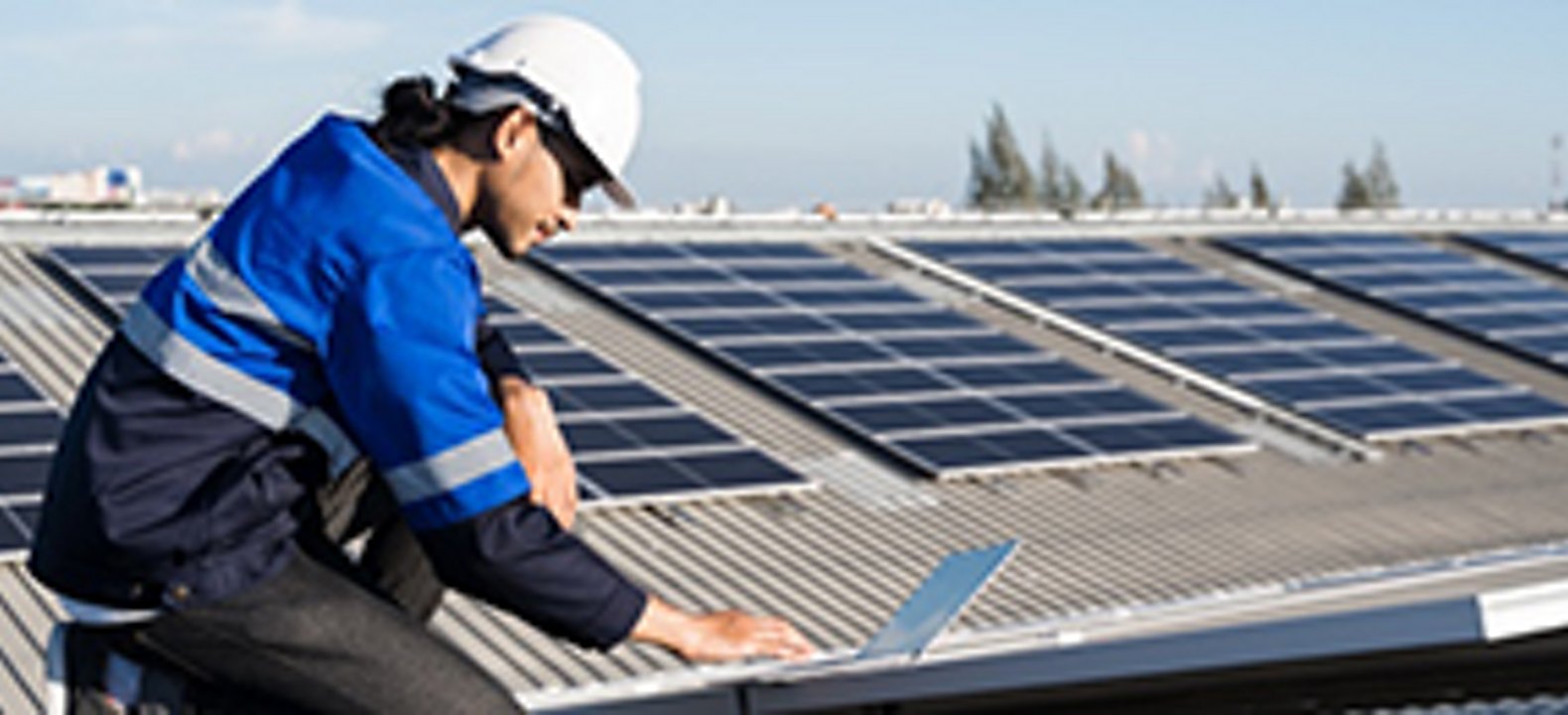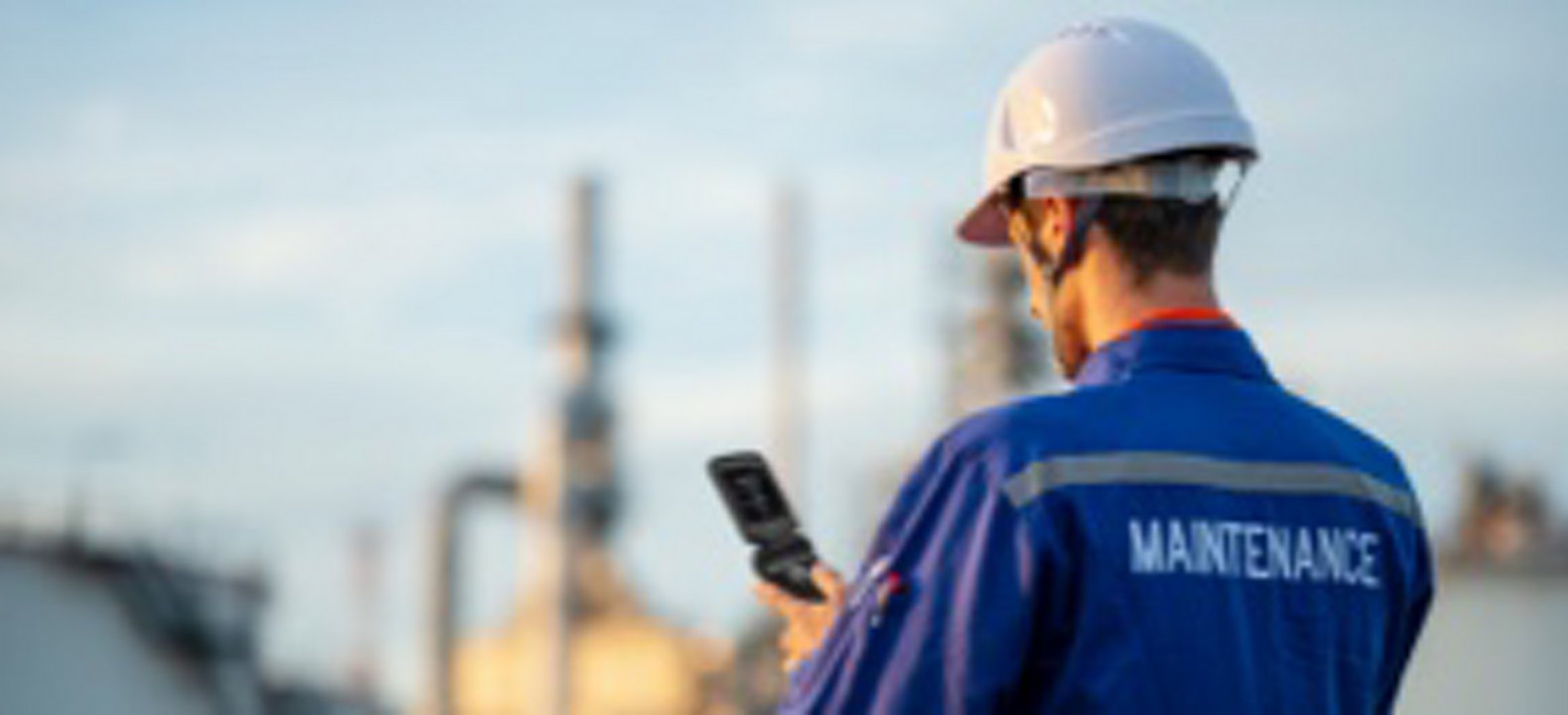OVERVIEW
Using digital technology to connect business operations.
Reasons for building a more connected enterprise.
Potential benefits throughout business operations.
Addressing security, cost, and capability concerns.
Share this article:
Related content.
How 5G will support the evolution of distributed energy resources.
From influencing EV charging times to delivering critical information to encouraging renewable resource integration and community participation, 5G is here to help.

The evolving role of AI in oil and gas operations.
Oil and gas companies are increasingly turning to advanced technologies like AI and IoT to improve operational efficiency and resilience. See how

We have the future technologies that are transforming the energy sector.

By Natacha Baroni, Energy Product Marketing Expert
DRIVING OPERATIONAL EFFICIENCY.
The oil and gas industry is emerging from a period when disconnected enterprises struggled with endless disruption and uncertain business continuity. The siloed operations and data that once characterized oil and gas operations are fading into the past. Why? It’s because companies are moving to a digital-first approach to improve productivity and efficiency both upstream and downstream.
Forward-thinking energy companies are employing a new layer of digital management to plan and implement technology that connects business systems and operations. They’re recognizing the value of connectivity to leverage innovations and make efficiency gains. At the same time, business leaders in these companies are measuring and tracking the connection between digital investment and business outcomes. For everything to work, those benefits must also be clear to operational leaders.
THE CONNECTIVITY IMPERATIVE.
A recent report from IDC, “Connectivity Advancements in the Oil and Gas Enterprise,” outlined the reasons for building a more connected enterprise indicated by oil and gas leaders. Aside from physical security concerns, their top three responses were productivity and efficiency, product and service quality, and faster and better decision making.1
Enterprise connectivity lays the foundation for the digital technologies needed to achieve these objectives. Oil and gas companies use a number of connective technologies, each appropriate for different applications. For example, the majority of companies that IDC surveyed have between two and four IoT platforms, including those used to gather internal and customer data. Having this data eventually come together for real-time decision making is imperative to drive efficiency.
Find out about smart solutions for your business.
INNOVATIONS UPSTREAM AND DOWNSTREAM.
Connected technologies are proving their worth throughout oil and gas operations. Upstream, more real-time decisions and analysis now occur in a central location—rather than on the rig or production site—thanks to IoT platforms and superior connectivity. In drilling and completions, downhole intelligence is replacing production logs. And artificial lift optimization taps technology that makes the most of a well’s natural dynamics.
Downstream, operational downtime related to mechanical failures, corrosion integrity, or safety incidents is the critical metric. Most companies have deployed technology for equipment health or asset performance management, although the level of predictive and prescriptive capabilities varies widely. These technologies are complemented by inspection drones and robots, which help improve speed, efficiency, and safety during inspections.
ONE SIZE DOESN’T FIT ALL.
What’s standing in the way of the more connected and intelligent oil and gas enterprise? The IDC report cites security, cost, technology stability, and capability concerns1.
To maximize ROI from connectivity investments, oil and gas companies need to select connection technologies that meet application needs and cost and capabilities criteria. For example, fiber is optimal for a harsh, remote environment like offshore drilling. On the other hand, short-range connections, which provide connectivity within a local sphere of interaction, offer the right mix of cost and performance for close-proximity supply chain tracking.
The key is to recognize that connectivity can’t be one-size-fits-all. Making the right choices requires the help of a technology provider with the oil and gas experience and portfolio breadth to deliver on connectivity and digital technology needs and achieve desired outcomes.
About the author:

Natacha Baroni, Energy Product Marketing Expert, with over a decade of experience enabling customers in the energy industry improve efficiency, digital transformation, and safety. Specializing in marketing and product management, she uses her experience to bring industry and customer perspectives into the development of business initiatives and go to market strategies to best meet industry needs.
Natacha holds a B.Sc. in Chemistry from the University of Wisconsin – Milwaukee and an MBA from Olin Business School – Washington University in St. Louis.
1IDC, Oil and Gas: Future of Operations Survey (IDC #US48281521, November 2021). Fastest: Based on median, overall combined 5G speeds according to analysis by Ookla® of Speedtest Intelligence® data 5G download speeds for Q3 2022. Largest and Faster 5G Network: According to independent third-party umlaut from crowdsourced user experience data including task completion (Apr to Sept 2022). See 5G device, coverage, & access details at
Want even more trends, insights, and success stories?
Interested in